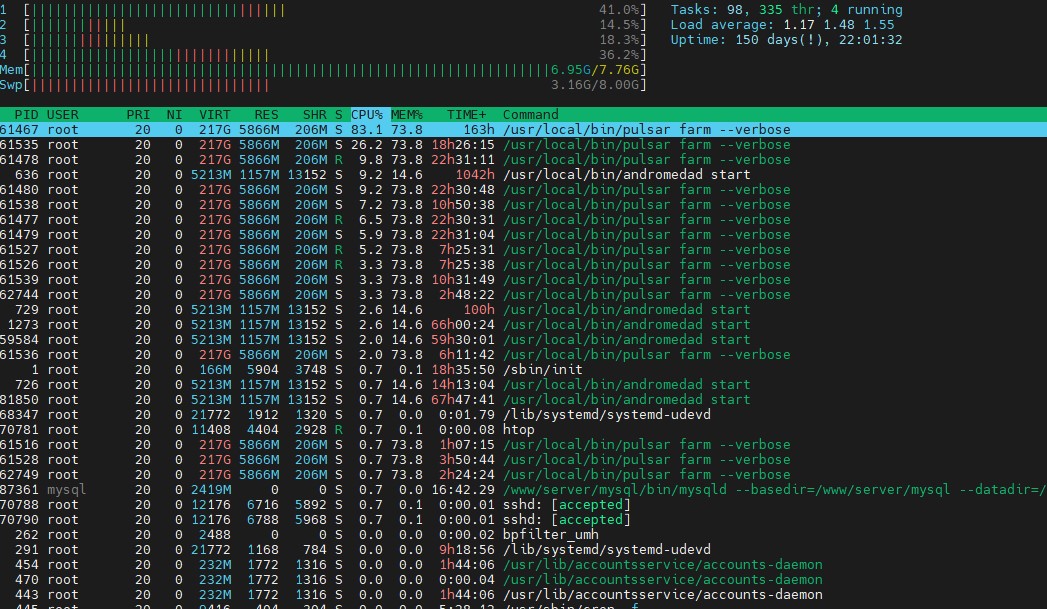Traversing the Timeline: Ubuntu 12.10 vs 20.04.2 LTS Compared

In the world of open-source operating systems, Ubuntu stands as a beacon of innovation, user-friendliness, and versatility. Its progress over the years, from the game-changing 12.10 release to the sophisticated 20.04.2 LTS version, has been nothing short of remarkable. This article aims to provide a comprehensive comparison of these two pivotal releases, highlighting the major advancements and improvements as we traverse the Ubuntu timeline.
A Leap in Time: Ubuntu 12.10 vs 20.04.2 LTS
The journey of Ubuntu from 12.10 to 20.04.2 LTS is a tale of consistent growth and evolution. Released in October 2012, Ubuntu 12.10, nicknamed ‘Quantal Quetzal’, aimed to bring a seamless user experience with a new integrated shopping lens and full-disk encryption option. Fast forward to April 2020, Ubuntu 20.04.2 LTS (Long Term Support), codenamed ‘Focal Fossa,’ brought in an array of enhancements, including smoother graphics, improved system performance, and extended support for professional use. It’s a leap that not only measures the passage of time but also showcases the progress of technology.
The Evolution of Ubuntu: A Decade in Review
Looking back at the last decade, Ubuntu’s evolution is a testament to its commitment to open-source principles and user convenience. The introduction of Unity as the default desktop environment in Ubuntu 12.10 marked a significant shift in the operating system’s look and feel. But with 20.04.2 LTS, Ubuntu bid farewell to Unity, opting for the more popular GNOME as the default, reflecting the changing user preferences over the years. The software package system transitioned from the traditional Synaptic Package Manager to the novel Snap package system, providing a more secure and streamlined software management process.
Ubuntu 12.10: The Turning Point in Linux History
Ubuntu 12.10 will always hold a special place in Linux history. It was the first to introduce web apps, allowing users to access popular websites directly from the Launcher. The release also included Online Accounts, which integrated social media services into the desktop. However, it was the introduction of Amazon shopping suggestions in the Dash that made the biggest splash, mirroring the growing convergence of technology and commerce.
Ubuntu 20.04.2 LTS: The Modern Linux Prodigy
Ubuntu 20.04.2 LTS, on the other hand, stands as a modern prodigy in the Linux landscape. It brought significant improvements in performance, compatibility, and longevity. The focus on stability, with the inclusion of the 5.4 Linux Kernel, made it a popular choice for professional use. The optional ZFS filesystem, enhanced hardware support, and an updated set of applications made it a robust and reliable operating system for a wide range of devices.
Comparative Analysis: Navigating Changes and Improvements
| Feature | Ubuntu 12.10 | Ubuntu 20.04.2 LTS |
|---|---|---|
| Default Desktop Environment | Unity | GNOME |
| Software Management | Synaptic Package Manager | Snap |
| Filesystem | EXT4 | EXT4, ZFS (Optional) |
| Linux Kernel | 3.5 | 5.4 |
| Support Duration | 18 Months | 5 Years |
The table above provides a comparative snapshot of the key features and improvements. As we traverse from Ubuntu 12.10 to 20.04.2 LTS, we see a definitive shift towards better performance, enhanced compatibility, and longer-term support.
Retrospect and Prospect: The Future of Ubuntu OS
As we retrospect the journey of Ubuntu, it’s evident that it has continually adapted to the changing technological trends and user needs. The shift from Unity to GNOME, the introduction of the Snap package system, and the support for ZFS filesystem are testament to this adaptability. Looking ahead, the future of Ubuntu is promising. With its focus on improving stability, performance, and user experience, it continues to stake its claim as one of the top contenders in the open-source operating system landscape.
In conclusion, the journey from Ubuntu 12.10 to 20.04.2 LTS is a reflection of the evolution of technology and user needs over the last decade. The Ubuntu operating system, with its commitment to open-source principles, adaptability, and user convenience, has set high standards for future developments. As we look forward to the next release, we can only expect Ubuntu to continue its trajectory of growth and innovation.